Find out more about the types of learning differences
 Is your child struggling in school? He or she may have learning differences. Our Plano pediatricians are here to discuss some common types of differences, including dyslexia, dysgraphia and dyscalculia. The more you know about these issues, the more you can help your child grow and learn.
Is your child struggling in school? He or she may have learning differences. Our Plano pediatricians are here to discuss some common types of differences, including dyslexia, dysgraphia and dyscalculia. The more you know about these issues, the more you can help your child grow and learn.
What are learning differences?
People used to call these differences learning disabilities. Now that we understand them better, we call them learning differences. When your child’s brain processes information differently than other people, he or she may experience problems with reading, writing and math.
These differences may be challenging for you and your child. However, our Plano pediatricians can help by providing advice and support.
Dyslexia
It’s commonly thought that dyslexia simply causes children to see words in reverse. This may be part of the problem. However, this condition is actually an information-processing issue that affects the language areas of the brain.
Here are some things that may give a child with dyslexia problems.
- Learning things like the alphabet, colors, numbers and shapes
- Learning things phonetically and sounding out words
- Correctly reading and spelling words
- Writing his or her name
- Pronouncing long words
- Rhyming words
As a young child, he or she may have had problems learning to talk. Handwriting and fine motor skills can also be problematic.
Dysgraphia
A child with dysgraphia has problems with writing and may also have issues with spelling and getting thoughts down on paper.
Here are some other issues to look for.
- Writing very slowly or with great difficulty
- Illegible handwriting
- Holding a pen or a pencil awkwardly
- Problems with notetaking and finishing school assignments
- Frustration with writing assignments
- Problems with spelling
Dyscalculia
Many people will say they have problems with math, but dyscalculia is a more complicated problem. If your child has great difficulty with numbers and math skills, he or she may have dyscalculia.
Here are some problems your child may exhibit.
- Problems learning to count
- Difficulty memorizing and remembering math facts
- Problems following a sequence and writing numbers
- Taking a very long time to solve math problems
- Frustration and anxiety whenever math assignments appear
- Difficulty with patterns and measuring things
If you suspect that your child is having trouble with learning, consult our Plano pediatricians. They can help you understand types of learning differences, including dyslexia, dysgraphia and dyscalculia. Contact us for an appointment.

